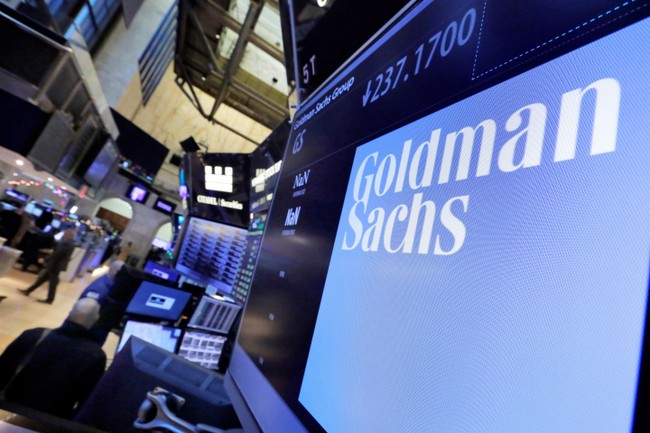Say, remember when people kept telling conservatives that the culture war had already been lost? Good times, good times.
In yet another advance for equality over “equity,” another corporate giant has hit reverse on so-called “Diversity Equity Inclusion” policies. Goldman Sachs, perhaps one of the most politically connected firms in the US, told Bloomberg News that it would abandon its previous policy demanding “board diversity” for initial public offerings (IPOs):
Goldman Sachs Group Inc. is abandoning a significant pledge it made to refuse initial public offering business with companies that had all White, male boards.
Wall Street’s leading investment bank had a policy that it would only take a company public in the US or Western Europe if it included two diverse board members, one of whom must be a woman. The rule had initially been put in place in 2020 with a requirement for at least one diverse board member.
“As a result of legal developments related to board diversity requirements, we ended our formal board diversity policy,” said Tony Fratto, a spokesperson for Goldman Sachs. “We continue to believe that successful boards benefit from diverse backgrounds and perspectives, and we will encourage them to take this approach.”
Goldman Sachs pushed this policy in the wake of the George Floyd riots, and it was more than just virtue signaling. Or, more accurately, it was more than virtue signaling for a while. Initially, their size allowed Goldman Sachs to shake off complaints by clients over their demands for board quotas before becoming involved in IPOs and other funding opportunities.
Lately, however, Bloomberg notes that Goldman Sachs had quietly reversed their red-line approach. A week ago, they assisted on an IPO for cement manufacturer Titan America SA without insisting that they appoint a woman to the board. That may be more because the appellate courts got involved in striking down a similar rule at NASDAQ after investors sued over the policy, rather than Trump’s win and subsequent EO:
A similar rule for listings on Nasdaq Inc.’s US exchange was struck down by a federal appeals court in December as conservative ramped up the pressure against diversity, equity and inclusion efforts in corporate America. Nasdaq’s policy was challenged by a group led by Edward Blum, the activist best known for helping to end affirmative action in college admissions. Rather than attacking Nasdaq directly, the group raised issue with the US Securities and Exchange Commission’s approval of the rule, which it claimed enabled “invidious discrimination.” State attorneys general then joined in with a similar message.
So this is probably one part a recognition that legal liabilities attach to quota-based discrimination, and at least one part the cultural rejection of immutable-characteristic determinism. And throw in one part consumer activism as well, because anti-DEI activist groups had turned their sights onto the financial industry already, as the Wall Street Journal reported a couple of weeks ago:
Goldman Sachs and JPMorgan Chase are in the crosshairs of right-leaning activist groups privately pushing them to abandon or shrink their diversity, equity and inclusion efforts, according to people familiar with the matter.
Bank of America and Citigroup, meanwhile, are under pressure from activists accusing them of discriminating against customers because of their religious or political beliefs.
The various groups—which include the National Center for Public Policy Research, the National Legal and Policy Center and the Heritage Foundation—each own small stakes in shares of the banks they are targeting, and submitted proposals challenging their business practices late last year, the people said.
At that time, Goldman Sachs was still publicly defending their DEI policies:
A Goldman spokeswoman said the bank strongly believes that organizations benefit from diverse perspectives and that it is committed to operating its programs and policies in compliance with the law.
What changed? Not the law; the appellate court ruling on NASDAQ’s DEI quotas came three months ago. Trump’s EO has no direct impact on their operations either; it applies to government agencies and those receiving direct government funding.
What has really changed is the culture, reflected in both the culture and — most importantly — the popularity of Trump’s executive orders ending affirmative action and DEI. The CBS poll this weekend may have been the watershed moment for DEI in corporate America, as it revealed just how unpopular these policies have become. Six in ten Americans think Trump has either fought DEI by the right amount or not enough:
 Even 14% of Democrats think Trump has not yet gone far enough to root out DEI, while another 16% support what he’s done so far. Twenty percent of black respondents agree, and only 56% of black respondents think Trump has gone too far. Fifty-five percent of women — the specific beneficiaries of this Goldman Sachs board-quota policy — support Trump’s efforts to excise DEI policies. Sixty-three percent of those under 30 years of age support it as well. In fact, they are tied with 45-64YOs in being the most supportive age demo of Trump’s EO and actions to eliminate DEI.
Even 14% of Democrats think Trump has not yet gone far enough to root out DEI, while another 16% support what he’s done so far. Twenty percent of black respondents agree, and only 56% of black respondents think Trump has gone too far. Fifty-five percent of women — the specific beneficiaries of this Goldman Sachs board-quota policy — support Trump’s efforts to excise DEI policies. Sixty-three percent of those under 30 years of age support it as well. In fact, they are tied with 45-64YOs in being the most supportive age demo of Trump’s EO and actions to eliminate DEI.
Goldman Sachs has woken up, so to speak, and smelled the coffee. One has to wonder why Democrats still haven’t, but they are about to lose corporate America over their refusal to wake up from being ‘woke.’










